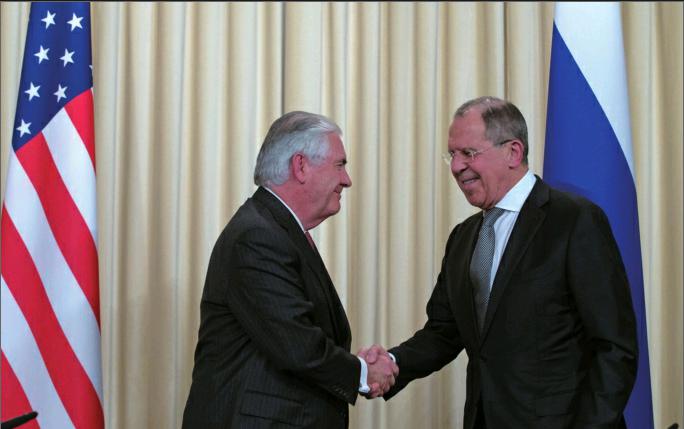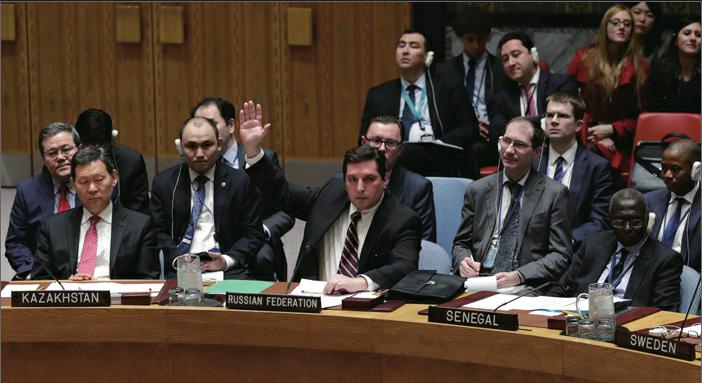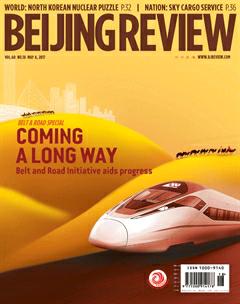Heading the Wrong Way?
By+Clifford+A.+Kiracofe


Will Donald Trump keep his campaign promise for better relations with Russia? Washingtons Cold War mindset appears to be perpetual despite the election rhetoric and a brand new White House.
While Moscow signals a willingness to improve relations, Washington continues to make security the focal point of the relationship through NATO pressure. The Ukraine crisis, caused by the Barack Obama administrations regime change policy, remains unresolved, and the chaos produced by the George W. Bush and Obama Middle East policies continues.
To repair relations with Russia, the White House must drop obsolete geopolitical concepts aimed at containing the Eurasian landmass and Russia. But this is not a simple matter, given U.S. elites consensus on policy toward Russia.
Consensus against Russia
Just prior to the 2008 U.S. election, the nations foreign policy elites agreed on a bipartisan consensus that would inform the foreign policy of the winning party. The consensus centered on maintaining the post-World War II (WWII) hegemonic global position of the U.S., supported by a unifi ed West.
New international factors, such as the return of Russia and the rise of China and India, entered into the need for an updated elite consensus. Rather than adjust to an emerging “multipolar” or “polycentric” international system, the transatlantic foreign policy elites aimed at maintaining a stratified hierarchic system with the U.S. and Western Europe sitting on top of the pyramid.
Political, economic and military relations were to be strengthened in the so-called Atlantic world, which was thus to become a fortress of economic and military power. As some critics charge, the Atlantic world seeks to continue as the global center with the rest of the world on the periphery.
In this view of the international system, the center dominates the periphery by using the machinery of fi nance capitalism and NATO. Exploitation of the periphery takes place under neoliberal economic arrangements which subordinate nation states through debt and other fi nancial methods.
Advocates of a multipolar system say it would be quite different. In their view, nation states would preserve their sovereignty, and there would be no dominant hegemonic power center. Diversity would be respected in terms of culture and economic model. Cooperation to foster peace and development would be the accepted norm.
Cold War thinking poisons ties
Washingtons prevailing Cold War mindset is a threat to peace. The associated, self-serving narrative repeated ad nauseam in elite transatlantic policy circles is facile and misleading. As the story goes, the U.S. won the WWII and became the leader of the “free world.” The post-war international fi nancial architecture supporting finance capitalism must remain in place so that the West remains dominant and the so-called liberal international order is protected. The U.S. must continue to exercise global hegemony as a world policeman under the guise of “leadership.”

U.S. elites label Russia a “revisionist”power wanting to upset the so-called “liberal international order” constructed after WWII. It is revisionist because Moscow advocates encouraging the evolution of the international system in a polycentric direction. Russia insists on the principle of state sovereignty and the norms of international law. Russia calls for diplomacy to be restored to its rightful place in the management of international relations and insists on a proper role for the United Nations.
Russias present position is not acceptable to the U.S. and its European NATO allies because it contradicts Western hegemony. If a regime change in Russia brought neoliberal economic policies to the nation, so that it could be brought under the fi nancial domination of the Atlantic powers, this would be acceptable. It would represent the fi nal victory in the Cold War and a signifi cant stage in the consolidation of the global dominion of fi nance capitalism.
Until such a capitulation by Russia occurs, the U.S. and transatlantic elites will use coercive diplomacy and NATO to contain Russia. The present U.S. policy of encircling Russia with an anti-ballistic missile network is an expression of such containment and hard power. Not surprisingly, NATO expansion is perceived by Moscow as potentially threatening, and the new plans for the globalization of NATO give rise to further concerns.
Integrating Russia into Europe is seen by some as a way to blunt Russias “Eurasianism”and to weaken Russias cooperation with China. This wishful thinking ignores the historical and geographical facts that Russia has both a European and an Asian destiny.
Against this elite policy consensus in Washington, there are voices calling for change. During his election campaign, Trump himself was one such voice. He appealed to anti-war sentiment on the left and to anti-interventionism sentiment on the right. He rejected the neoconservatives and hawks and called for new thinking about foreign policy.
But when Trump took office, things changed. A massive, hysterical anti-Russia campaign in the media and on Capitol Hill confronted the new administration. This frenzied tidal wave brought a halt to any early opening to Russia.
Another factor is the selection of wellknown hawks for key positions in the administration, such as Secretary of Defense James Mattis and National Security Advisor H. R. McMaster. Fiona Hill, widely known for her hawkish Russia stance, is in charge of Russian affairs at the National Security Council. Jon M. Huntsman, a hawkish Republican politician and former U.S. ambassador to China, is slated to become U.S. ambassador to Russia. Huntsman is chairman of the very hawkish Atlantic Council, the leading pro-NATO think tank in Washington.
History offers hope
U.S.-Russian relations have been generally good over the centuries. Looking back, com- mercial relations began during North Americas colonial period, over 300 years ago. Signifi cant trade developed during the 18th and 19th centuries. At the diplomatic level, Russia was a consistent friend of the U.S. during the tsarist era. Catherine the Great (1729-96) was of assistance during the struggle for independence in North America. Later, when Britain and France supported separatism and secession of the southern states, Russia, under Alexander II (1818-81), firmly supported the Union and President Abraham Lincoln (1809-65).
After World War I, during the early Soviet era, a number of well-known U.S. firms invested in projects in the Soviet Union as a result of Vladimir Lenins (1870-1924) practical “new economic policy.” And cooperation between the U.S. and Russia helped win WWII.
So, taking the long view, U.S.-Russia relations have been strained only for the relatively short period since WWII. Today, unfortunately, those relations have become severely damaged to the point of disintegration. In the interests of world peace and development, U.S.-Russia relations must be improved.

